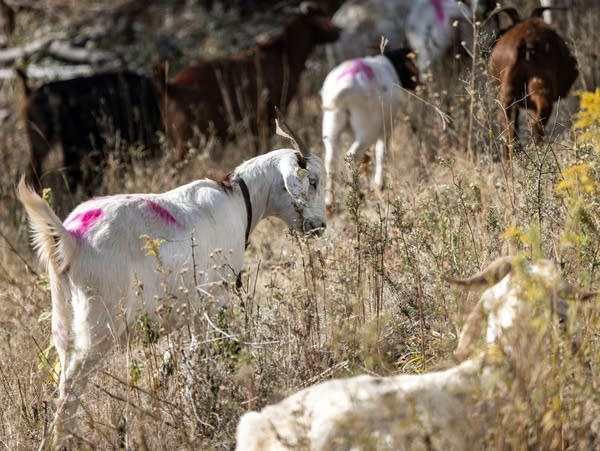Goats contract bird flu on Minnesota farm

A herd of Boer and Spanish goats graze in St. Paul on Oct. 20, 2022.
Ben Hovland | MPR News
Go Deeper.
Create an account or log in to save stories.
Like this?
Thanks for liking this story! We have added it to a list of your favorite stories.


